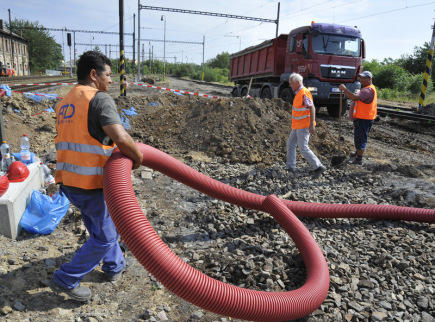Survey: Three quarters of manual workers in Prague have to earn extra
Update: 19/11/2022 07:30
Issued by: 19/11/2022, 07:30
Prague – Rising cost of living 68 percent of manual workers in Prague have to earn extra, most often people need to earn 5,000 to 9,000 CZK per month to get paid. This is the result of a survey by the start-up Grason among 300 respondents from the metropolis and the surrounding area who work as drivers, storekeepers, salespeople, cooks, waiters or service staff. The company connects part-timers with employers via a mobile application and offers work even for just one shift.
The survey showed that 39 percent of people, which is not enough income from their regular job, work for three or more employers at the same time. Roughly a third have extra income from another employer in addition to their regular employer, and 27 of those surveyed secure extra income by working extra shifts at their employer.
According to the survey, 49 percent of people who need additional income to their regular salary need to earn an extra 5,000 to 9,000 CZK per month. Roughly a third need to earn an extra 10,000 to 19,000 CZK per month, and 17 percent of people said they need 20,000 CZK or more in their family budget.
As the most common reasons why they need more money, people cited high down payments for utilities, energy prices, rising food prices, or they don’t want to be dependent on just one employer. According to Grason, some workers fear that their employer will go bankrupt due to the economic situation and they will lose their jobs.
The company operates an online platform for mediating flexible employment. She stated that nowadays the number of applicants for such a position is growing and there are 30 percent more hidden ones.
Consumer prices in the Czech Republic rose by 15.1 percent in October, according to data from the Czech Statistical Office. The rate of inflation slowed significantly, in September prices were 18 percent higher. According to economists, the slowdown in inflation growth affected the inclusion of government measures to reduce energy prices, and without the measures, price growth would have accelerated against September.
Electricity prices therefore fell by more than 50 percent month-on-month in October. The prices of natural gas rose by 2.7 percent, solid fuels by 8.4 percent, and warm and hot water by 3.1 percent. Food, for example, also became more expensive. Sugar went up by 54.3 percent, eggs by 27 percent and vegetables by 9.6 percent. After a two-month decline, fuel and oil prices rose by 4.9 percent.



